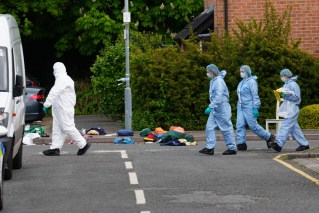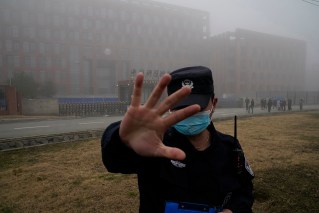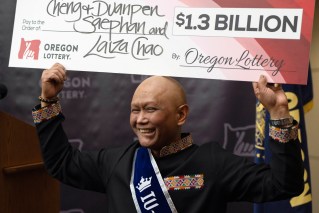Tories poised to take power
David Cameron’s Conservative party is on track to form the next British government, after Labour’s vote fell and the SNP swept Scotland in the UK’s general election.
UK polls by the numbers:
- About 48 million voters
- 650 MPs to be elected
- 43,000 polling stations
- 600 constituencies
The BBC is predicting the Conservatives will win 329 seats in the 650-seat parliament, enough for a slender majority in the House of Commons.
A total of 326 seats is required for an outright majority, although in practice 323 would suffice because Northern Ireland’s Sinn Fein nationalist does not take up its seats in parliament.
The Tory vote lifted in England at Labour’s expense.
Mr Cameron has thanked supporters and acknowledged it had been “a very strong night for the Conservative party”.
“I think we’ve had a positive response to a positive campaign about safeguarding our economy, about creating jobs, about a record the government over the last five years, but above all a plan for the next five years,” he said.
“It is too early to say exactly what sort of result there will be at the end of this night and the end of this election campaign.”
Mr Cameron is due to leave 10 Downing Street at 8:30pm (AEST) to meet Queen Elizabeth at Buckingham Palace and she is expected to formally invite him to form a new government.
The Scottish National Party routed Labour in Scotland, with swings of up to 35 per cent in the nationalists’ favour.
Among the SNP’s winners was a 20-year-old politics student who became the youngest British MP since 1667.

Counting staff sort through ballot papers. Photo: AAP
Sources within the Labour party have told the BBC that leader Ed Miliband will announce his resignation in the next few hours, but his office has refused to comment.
There is also speculation Liberal Democrat leader Nick Clegg may lose the leadership in the wake of the poll.
Mr Miliband, who held his South Yorkshire seat of North Doncaster, conceded it had “clearly been a very disappointing and difficult night for the Labour party”.
“In Scotland we’ve seen a surge of nationalism overwhelm our party,” he told Labour supporters.
“The next government has a huge responsibility in dealing with the task of keeping our country together. I believe that what unites us is much more than what divides us.”
Labour’s highest profile casualty was shadow chancellor Ed Balls, who lost his seat by 422 votes.
Mr Clegg held on to his seat in Sheffield, but hinted that he would announce his resignation in the coming days.
His party is forecast to retain only 10 of its 57 seats in the House of Commons.
Before polling day Mr Cameron promised his Conservatives would deliver a strong, stable government, and said “all other options will end in chaos”.
The Conservatives promised to reduce income tax for 30 million people while forcing through further spending cuts to eliminate a budget deficit still running at 5 per cent of gross domestic product.
Mr Cameron also said that if he returned to power his government would hold a referendum on whether to remain in the EU.
Labour said it would cut the deficit each year, raise income tax for the highest 1 per cent of earners and defend the interests of hard-pressed working families and the financially stretched national health service.

Projection of exit poll result. Photo: AAP
Five years ago, Britain got its first coalition government since World War II when Mr Cameron fell short of an overall majority and struck a deal with Mr Clegg’s centrist Liberal Democrats.
Mr Cameron voted in his Witney constituency in southern England, where he was heckled by fathers’ rights campaigners including a person dressed as Elmo from the children’s show Sesame Street.
Mr Miliband cast his ballot in Doncaster in northern England, while SNP chief Nicola Sturgeon was in Glasgow in Scotland and UK Independence Party (UKIP) leader Nigel Farage voted in Ramsgate in south-east England.
The last three polls released on Wednesday showed a dead heat between the two main parties.
Australian-born Green party leader Natalie Bennett failed in her bid for a London seat.
Leading pollster Peter Kellner of YouGov had predicted the Conservatives would end up with 284 seats to Labour’s 263, with the Scottish Nationalists on 48, Liberal Democrats 31, the anti-European UKIP two, Greens one, and Welsh and Northern Irish parties 21.








